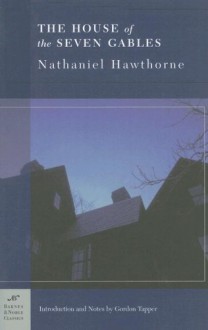The House of the Seven Gables, by Nathaniel Hawthorne, is part of the Barnes & Noble Classics series, which offers quality editions at affordable prices to the student and the general reader, including new scholarship, thoughtful design, and pages of carefully crafted extras. Here are some of the...
show more
The House of the Seven Gables, by Nathaniel Hawthorne, is part of the Barnes & Noble Classics series, which offers quality editions at affordable prices to the student and the general reader, including new scholarship, thoughtful design, and pages of carefully crafted extras. Here are some of the remarkable features of Barnes & Noble Classics: All editions are beautifully designed and are printed to superior specifications; some include illustrations of historical interest. Barnes & Noble Classics pulls together a constellation of influencesbiographical, historical, and literaryto enrich each reader's understanding of these enduring works. Greed, treachery, mesmerism, and murder are just some of the bricks Hawthorne uses to build The House of the Seven Gables. Generations before the present story begins, wealthy Colonel Pyncheon covets Matthew Maule’s land. When Maule is hanged for witchcraft, he puts a curse on the Coloneland all his descendants. Now the menacing Judge Pyncheon continues the family tradition of hiding cruelty under a dazzling smile, while his scowling niece, Hepzibah, and half-mad nephew, Clifford, are reduced to poverty by his machinations. But the younger generation, embodied in their distant cousin, Phoebe, becomes a ray of hope penetrating the dark house. Though Hawthorne openly discusses his book’s moral” in its preface, The House of the Seven Gables is no dry sermon. In fact, a strong stream of poetic fantasy runs through it, which the author acknowledges by calling it a romance,” rather than a novel. Like his other great works, The House of the Seven Gables reflects Hawthorne’s rich understanding of complex motives, of individuals caught in the unending struggle between our highest aspirations and our basest desires. Gordon Tapper, Associate Professor of English at DePauw University, is the author of The Machine That Sings: Modernism, Hart Crane, and the Culture of the Body. He also wrote the Introduction and Notes to the Barnes & Noble Classics edition of Willa Cather’s My Ántonia.
show less






 6 years ago
6 years ago




 10 years ago
10 years ago